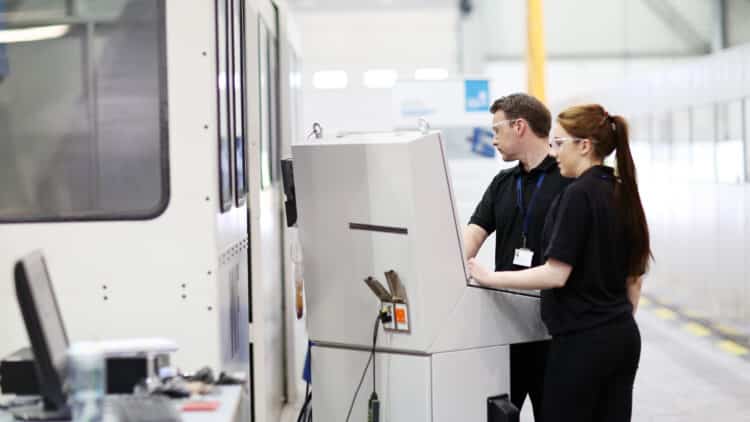Digital Engineering Technology and Innovation
Through DETI, the NCC helped businesses address common challenges to digital transformation, with 32 projects creating or safeguarding 87 jobs

Key points
Impact for the West of England
32 completed projects, 31 SMEs engaged and 87 FTE roles created or safeguarded
Engaging the next generation
17,000 children aged 4-18 across 218 schools engaged directly and 106,000 children reached through STEM activities
To achieve net zero by 2050, we need to invest in new ways to reduce and remove carbon emissions from what we produce and how we consume it. Providing an exciting opportunity to engineer better, sustainable products much faster using digital technologies that will accelerate innovation to drive decarbonisation. In parallel, the UK has a skills problem – the demand for digital transformation of its engineering industries is outstripping the number of engineers with digital skills.
Led by the NCC, Digital Engineering Technology and Innovation (DETI), a two-year research, innovation and skills programme, helped companies to identify and develop the tools, technologies and processes needed to rapidly boost digital engineering capabilities. It also included a skills programme that provided courses to upskill the current workforce, and a STEM programme to inspire and build a diverse and inclusive future generation of engineers.
Through DETI, the NCC produced a series of demonstrators showing businesses how they can address common challenges to digital transformation. These ranged from speeding up the product design process using immersive technologies and concurrent engineering techniques, to utilising the power of 5G and quantum computing to allow manufacturing operatives to securely control robots remotely and in real time with no delay.
Richard Oldfield, Chief Executive, National Composites Centre said:
DETI is a crucial part of enabling a future where the South West is the place to design net zero products. Holding the product design and development capability will lead to high value, long-term jobs both in the organisations that design the products, and the wider supply chain.
Related case studies
View more
CASE STUDY
Developing the skills system for emerging technologies
HVM Catapult is leading work to create a better technical skills system for manufacturing and many other key sectors in the UK
6 February 2023

CASE STUDY
Slashing waste for recyclable Alternative Pallets
WMG helped the Alternative Pallet Company save 6 tonnes of waste per month and build a profitable new product line
6 February 2023

CASE STUDY
AWESIM results for nuclear welding
Nuclear AMRC helps AWESIM consortium develop a game-changer for fusion welding, enabling quicker delivery at reduced cost and waste.
6 February 2023